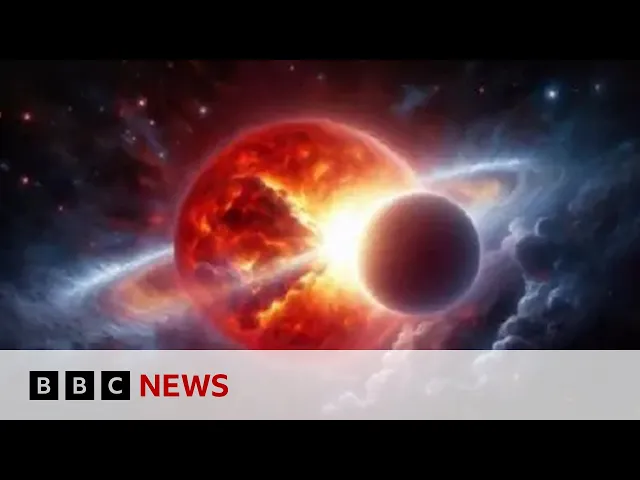Researchers use AI to analyse cosmic explosions

AI transforms cosmic explosion research
The landscape of astronomical research is experiencing a seismic shift thanks to artificial intelligence. Recent advances have enabled scientists to analyze cosmic explosions with unprecedented speed and accuracy, potentially revolutionizing our understanding of the universe. This transformative approach is rapidly changing how astronomers detect, classify, and study celestial phenomena that have traditionally required painstaking manual observation.
Key developments in AI-powered astronomy
- Real-time classification systems now allow astronomers to identify cosmic events like supernovae and gamma-ray bursts within seconds rather than hours or days, drastically accelerating research timelines
- Pattern recognition capabilities enable AI to detect subtle signals in astronomical data that human observers might miss, revealing previously hidden connections between different types of cosmic explosions
- Automated observation systems can autonomously redirect telescopes to capture critical data when significant events are detected, maximizing the scientific value of limited observation resources
The democratization of astronomical discovery
The most profound impact of AI in astronomy may be how it's leveling the playing field. Traditionally, astronomical research required access to expensive equipment and specialized training, limiting participation to well-funded institutions. Now, machine learning models can process vast amounts of publicly available data, allowing smaller research teams and even citizen scientists to make meaningful contributions.
"This democratization effect represents a fundamental shift in how astronomy operates," explains Dr. Sarah Chen, an astrophysicist at the Berkeley SETI Research Center. "We're seeing breakthrough discoveries coming from places that historically lacked the resources to compete with major observatories."
This matters tremendously in the broader scientific context. Astronomy has always been data-rich but analysis-poor – we can capture far more information than we can meaningfully process. AI bridges this gap, extracting insights from the massive backlog of astronomical observations that have accumulated over decades. The result is not just faster science, but entirely new scientific possibilities.
Beyond the algorithms: ethical dimensions
While the BBC report focuses primarily on technical capabilities, the integration of AI into astronomy raises important questions about scientific methodology. Traditional peer review processes rely on understanding how conclusions were reached, but the "black box" nature of some AI systems challenges this transparency.
The International Astronomical Union has recently formed an AI Ethics Committee to establish guidelines for research publications that incorporate machine learning. Their preliminary recommendations emphasize the need for astronomers to maintain
Recent Videos
How To Earn MONEY With Images (No Bullsh*t)
Smart earnings from your image collection In today's digital economy, passive income streams have become increasingly accessible to creators with various skill sets. A recent YouTube video cuts through the hype to explore legitimate ways photographers, designers, and even casual smartphone users can monetize their image collections. The strategies outlined don't rely on unrealistic promises or complicated schemes—instead, they focus on established marketplaces with proven revenue potential for image creators. Key Points Stock photography platforms like Shutterstock, Adobe Stock, and Getty Images remain viable income sources when you understand their specific requirements and optimize your submissions accordingly. Specialized marketplaces focusing...
Oct 3, 2025New SHAPE SHIFTING AI Robot Is Freaking People Out
Liquid robots will change everything In the quiet labs of Carnegie Mellon University, scientists have created something that feels plucked from science fiction—a magnetic slime robot that can transform between liquid and solid states, slipping through tight spaces before reassembling on the other side. This technology, showcased in a recent YouTube video, represents a significant leap beyond traditional robotics into a realm where machines mimic not just animal movements, but their fundamental physical properties. While the internet might be buzzing with dystopian concerns about "shape-shifting terminators," the reality offers far more promising applications that could revolutionize medicine, rescue operations, and...
Oct 3, 2025How To Do Homeless AI Tiktok Trend (Tiktok Homeless AI Tutorial)
AI homeless trend raises ethical concerns In an era where social media trends evolve faster than we can comprehend them, TikTok's "homeless AI" trend has sparked both creative engagement and serious ethical questions. The trend, which involves using AI to transform ordinary photos into images depicting homelessness, has rapidly gained traction across the platform, with creators eagerly jumping on board to showcase their digital transformations. While the technical process is relatively straightforward, the implications of digitally "becoming homeless" for entertainment deserve careful consideration. The video tutorial provides a step-by-step guide on creating these AI-generated images, explaining how users can transform...
